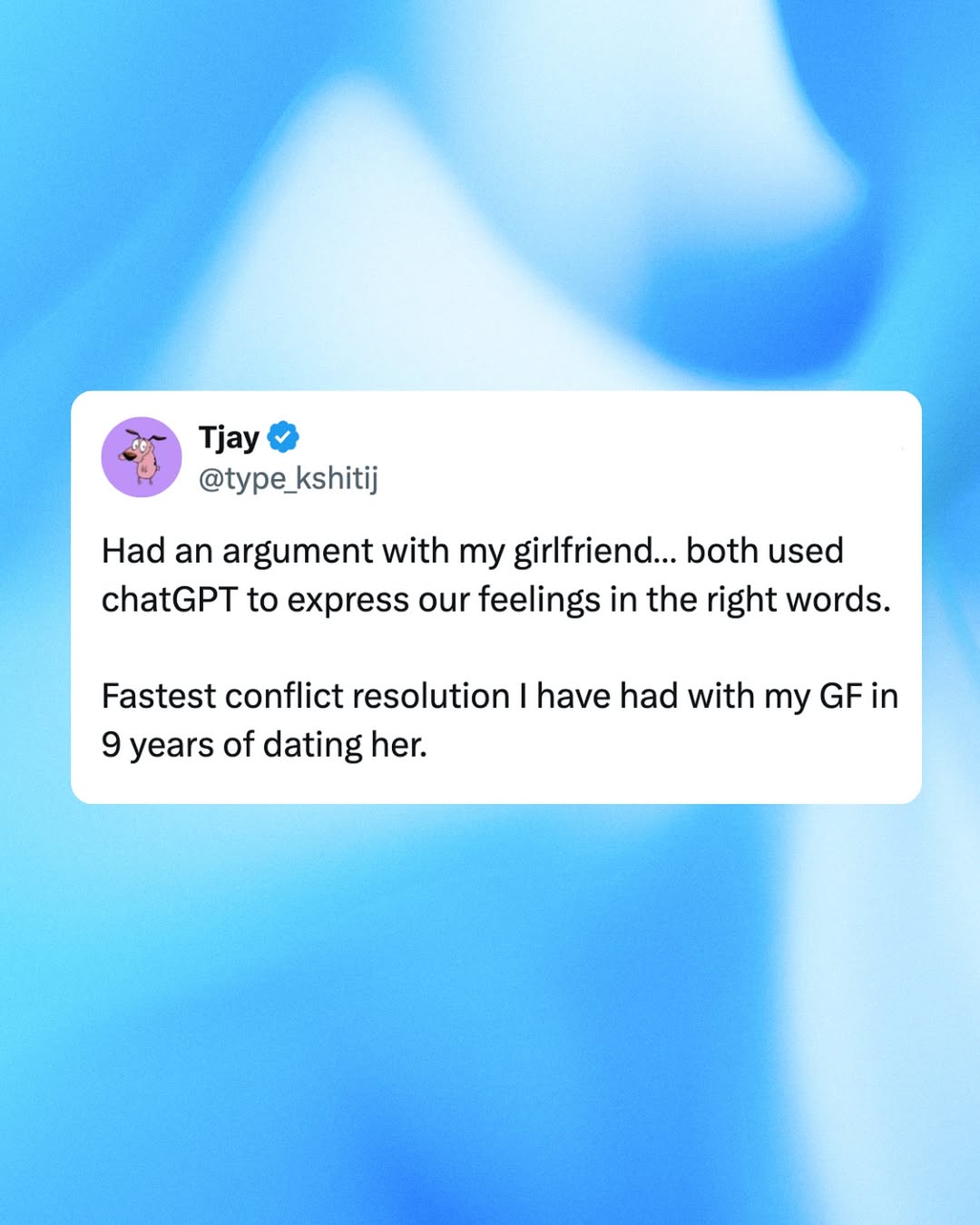A Kenyan man’s sad confession has gone viral on X for the way it was written. The user who goes by the handle Clive on X wrote: the breakup was over a text saying she needs time for herself, and it was Ai generated!
The confession has sparked a major conversation about love and technology.
The letter opened with vivid imagery, like “I’ve been staring at the same stormy sea we’ve been sailing,” a style that many found eloquent and moving. However, the revelation that the words came from an algorithm left others feeling both uneasy and unsurprised.
Public Reactions: Discomfort, and Questions
Reactions on X and Instagram were suggestive of disappointment. Some people sarcastically admired the quality of the writing and saw no issue with using AI to articulate difficult feelings.
“If the words are honest, does it matter who wrote them?” one user posted laughing.

But others saw it as a form of emotional evasion—outsourcing a difficult conversation to a machine. “If you can’t even break up in your own words, what was real in the relationship?” another commenter questioned.
The Bigger Picture: Emotional Automation
This viral confession highlights a growing trend called emotional automation. AI is no longer just writing emails and essays; it’s now being used for some of life’s most intimate moments, including apologies and marriage proposals.
Supporters say it helps people who struggle to express themselves, offering clarity during emotionally charged situations.
But critics warn that it removes accountability and diminishes the authenticity of raw, human expression.
A Shift in the Language of Intimacy
Before AI, breakups were deeply personal and messy. They happened face-to-face, over handwritten letters, or through phone calls where every pause and tone mattered.

Even a quick text message was still written with the sender’s own voice and emotion.
These imperfect conversations offered an unfiltered exchange that gave both people a chance to respond and heal.
Now, that’s changing. We already see AI writing dating profiles, wedding vows, and apologies.
The arrival of AI-written breakup messages introduces a new dynamic where algorithms don’t just deliver our words—they create them entirely.
Kenya Leading Global ChatGPT Use

At the same time, this trend is unfolding, Kenya has quietly become the world leader in Chat GPT adoption.
According to the July 2025 Global Digital Report, a staggering 42.1 percent of internet users aged 16 and above in Kenya used Chat GPT in the past month — the highest rate globally.
Analysts attribute this surge to Kenya’s youthful, digitally fluent population, widespread mobile internet access, and thriving gig economy.
For students, freelancers, and professionals alike, ChatGPT has become a productivity engine—from writing emails and homework to planning businesses and coding.
The Efficiency and the Cost

Some people believe that AI can be helpful.
They argue that it can offer a structured and thoughtful alternative for people who struggle to articulate their feelings.
A carefully crafted message, they say, can prevent misunderstandings and soften the blow of a breakup, especially in moments of high emotion.
However, the trade-offs are significant. When an algorithm handles the language of heartbreak, it removes emotional accountability. The sender is spared the discomfort of vulnerability, but the recipient is left questioning the sincerity of the words.
The flawed, human attempt to explain ourselves is replaced with a flawless, impersonal message.
by yuletide tina













